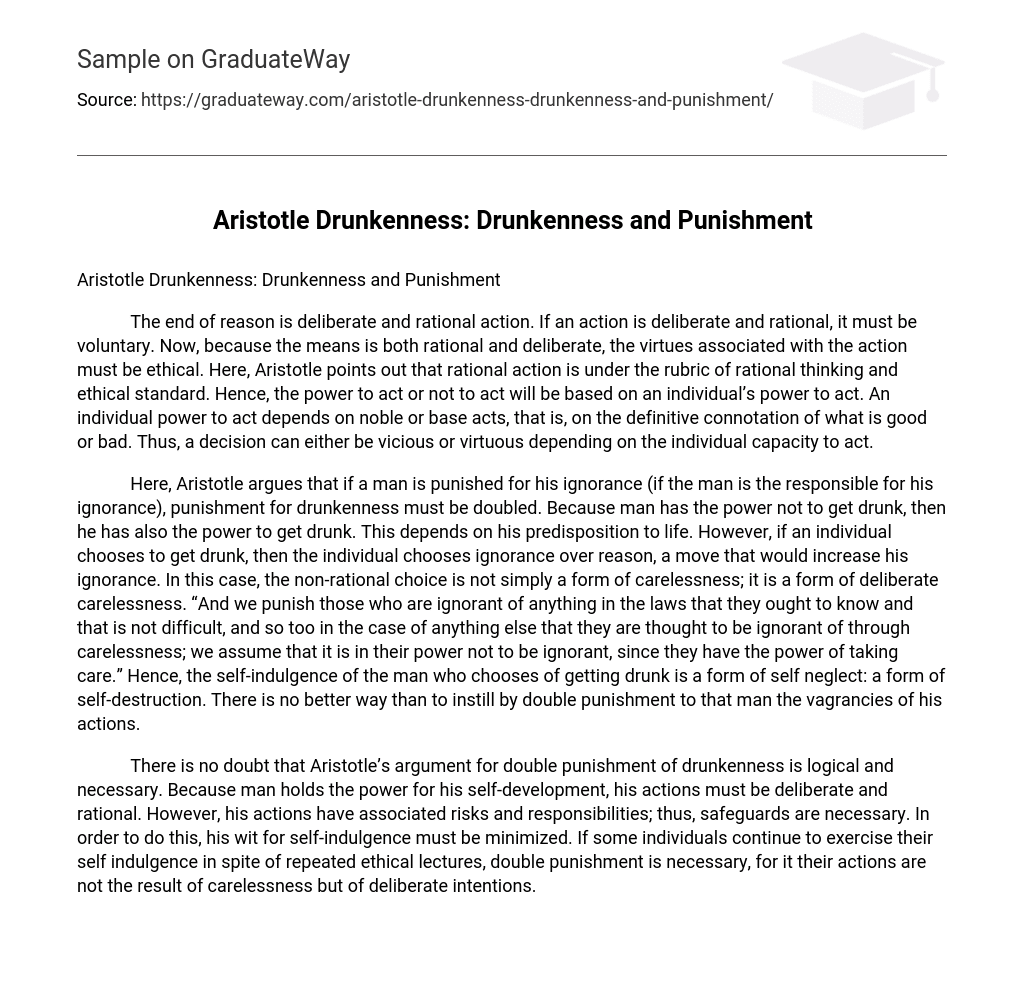The end of reason is deliberate and rational action. If an action is deliberate and rational, it must be voluntary. Now, because the means is both rational and deliberate, the virtues associated with the action must be ethical. Here, Aristotle points out that rational action is under the rubric of rational thinking and ethical standard. Hence, the power to act or not to act will be based on an individual’s power to act. An individual power to act depends on noble or base acts, that is, on the definitive connotation of what is good or bad. Thus, a decision can either be vicious or virtuous depending on the individual capacity to act.
Here, Aristotle argues that if a man is punished for his ignorance (if the man is the responsible for his ignorance), punishment for drunkenness must be doubled. Because man has the power not to get drunk, then he has also the power to get drunk. This depends on his predisposition to life. However, if an individual chooses to get drunk, then the individual chooses ignorance over reason, a move that would increase his ignorance. In this case, the non-rational choice is not simply a form of carelessness; it is a form of deliberate carelessness. “And we punish those who are ignorant of anything in the laws that they ought to know and that is not difficult, and so too in the case of anything else that they are thought to be ignorant of through carelessness; we assume that it is in their power not to be ignorant, since they have the power of taking care.” Hence, the self-indulgence of the man who chooses of getting drunk is a form of self neglect: a form of self-destruction. There is no better way than to instill by double punishment to that man the vagrancies of his actions.
There is no doubt that Aristotle’s argument for double punishment of drunkenness is logical and necessary. Because man holds the power for his self-development, his actions must be deliberate and rational. However, his actions have associated risks and responsibilities; thus, safeguards are necessary. In order to do this, his wit for self-indulgence must be minimized. If some individuals continue to exercise their self indulgence in spite of repeated ethical lectures, double punishment is necessary, for it their actions are not the result of carelessness but of deliberate intentions.





